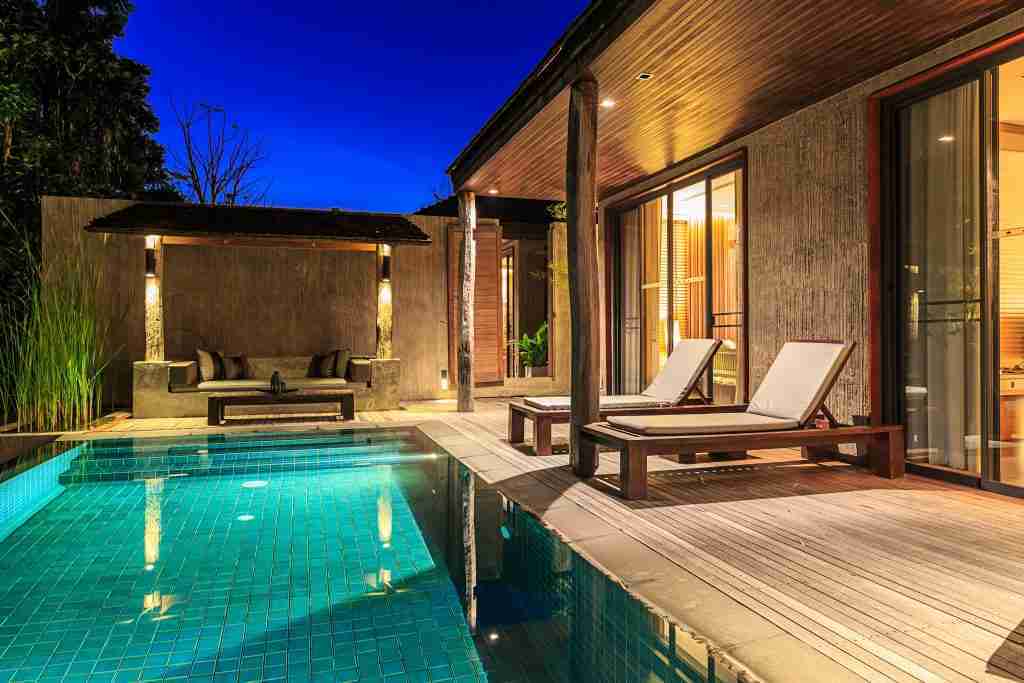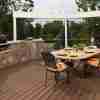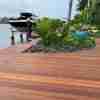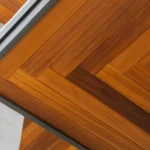Lumber
The 5 Best Types Of Lumber For Outdoor Projects
If you are looking for the best lumber options for outdoor projects, this is the right article for you. Ipe, Teak, Cumaru, Jatoba, and Garapa are the types of wood that come to mind when looking for a durable material that is resistant to weathering, rot, decay, and insect damage.
As if these incredible features weren’t enough reason to choose them for outdoor projects, there’s the natural beauty of lumber, as well as the warmth and comfort they bring to your home.
But not all types of lumber are suitable for outdoor projects, Ipe, Teak, Cumaru, Jatoba, and Garapa are tropical hardwoods that have special properties that make them the best alternatives for exteriors.
For example, they have natural barriers that prevent moisture, insects, and organisms from entering the wood, without the need for chemical treatment.
From an ecological point of view, wood is a perfect choice as long as it is harvested sustainably. As a natural product, it is not treated with any chemicals or harmful substances.
For our brand and company, sustainability is a very important aspect as it helps preserve the tropical forest, because the natural life cycle of each tree is respected. That is why the tropical rainforest preservation project has full support.
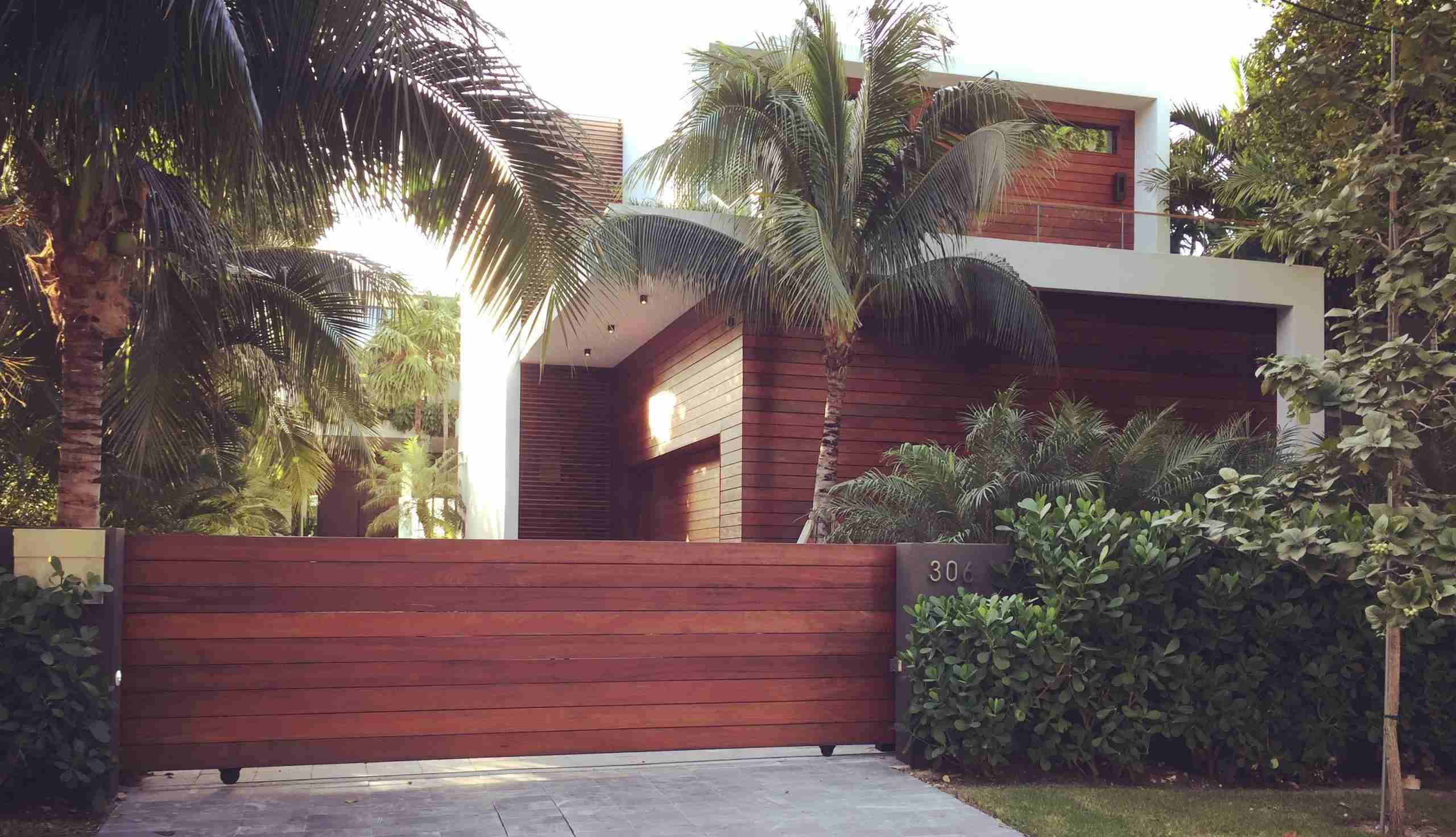
Now, back to the main point, here is a list of what the Brazilian Lumber team considers to be the 5 best types of lumber for outdoor projects:
- Ipe
- Teak
- Cumaru
- Jatoba
- Garapa
Before giving all the information about these super-powerful tropical hardwoods, it is important to specify that they share many of the same properties, as these types of woods are the most resistant to external factors.
However, there is one aspect that sets them apart, and that is their Janka rating (a rating largely used by the wood flooring industry to compare the hardness of a floor):
- Ipe: 3,510 lb
- Cumaru: 3,330 lb
- Jatoba; 2,690 lb
- Garapa: 1,650 lb
- Teak: 1,070 lb
1. The Superpower Of Ipe Lumber
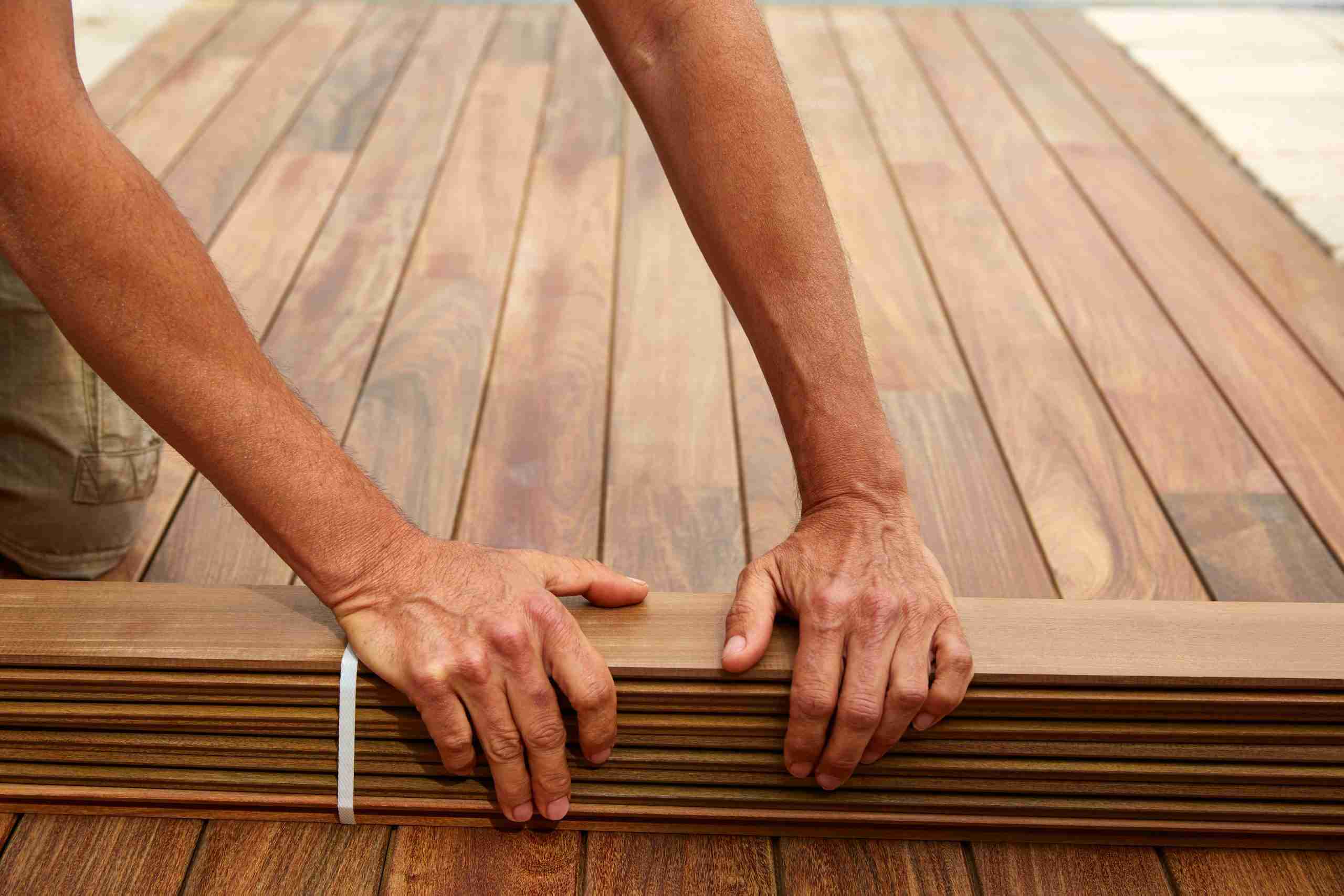
Ipe lumber is a special and unique type of tropical hardwood found in South and Central America. It is much stronger and more weather resistant than many other decking wood options.
In addition, it has a natural dark red and brown color that many people like. Plus, it has the ability to naturally acquire a platinum color over the years.
It also resists movement, warping, cracking, rotting, and denting. Thanks to its oil content, it is also highly resistant to insects and fungi, making Ipe the ideal wood for outdoor applications.
It is often sold for decking due to its extreme weather resistance and density. Also, this lumber does not scratch or splinter easily, does not heat up in the sun, and has a high coefficient of friction.
These are the most important characteristics of Ipe:
- Robust and durable: Ipe is one of the densest woods in the world due to its cell structure and the natural oils it is made of.
- Low maintenance: Ipe wood decking is an easy-care surface. For added protection, it can be cleaned regularly, sanded to prevent fading, and oiled.
- Non-slip surface
- Not a heat absorbant surface
2. Teak Is The King Of Waterproof Lumber
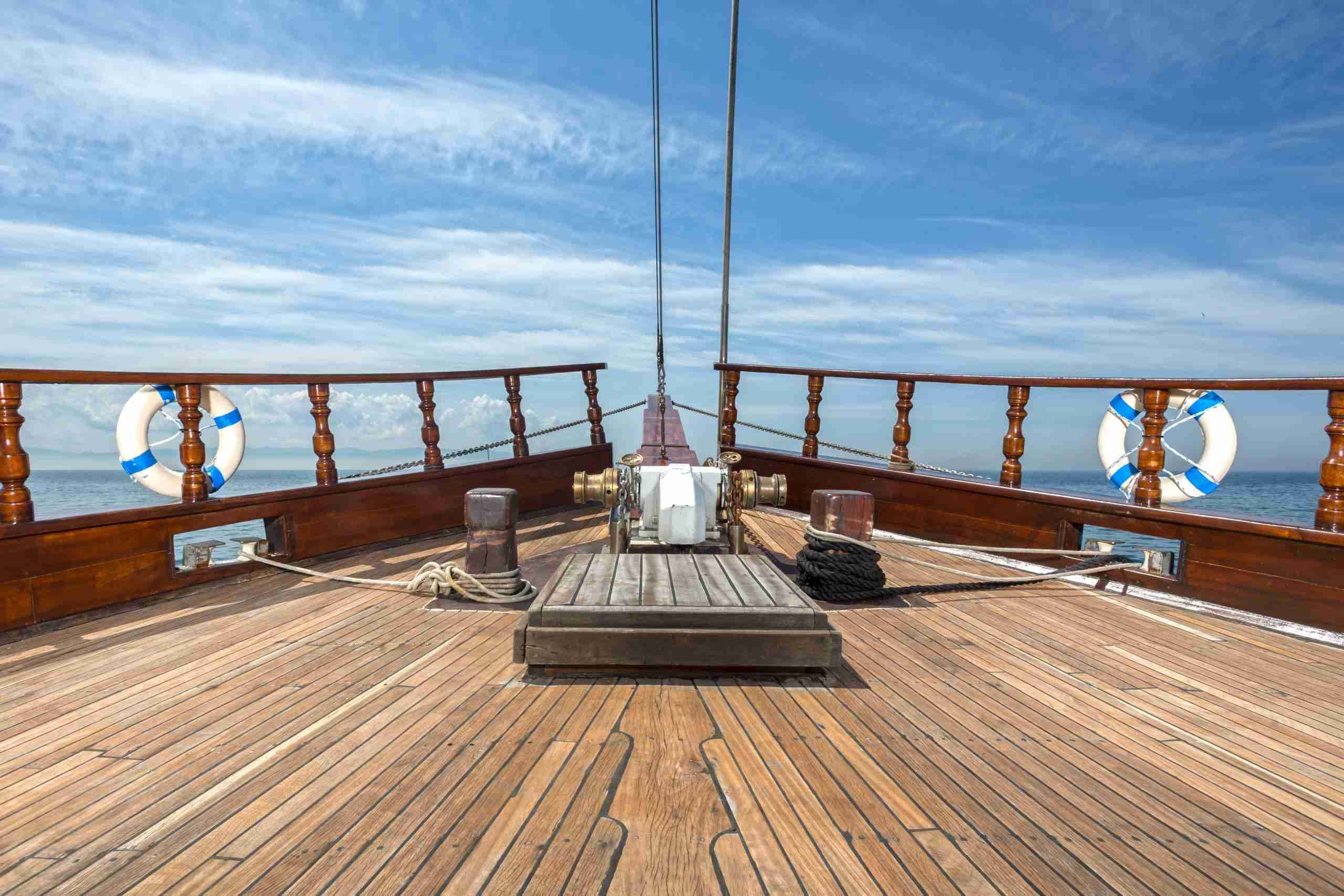
Burmese Teak is the most durable lumber for outdoor projects. It is extremely resistant to rot, which is why it is associated with boat building, is relatively dense and straight, will not warp or split over time, and has an attractive appearance.
This lumber contains natural oils that repel some insects. In addition, it does not shrink or swell as much with changes in humidity as many other woods.
For maintenance, you have two alternatives: use teak oil to maintain its natural color, or let the sun’s ultraviolet rays turn it gray.
Here is the list of the outstanding properties of teak:
- Weather and water-resistant: The same resins and oils that protect against weathering also act as repellents against insects such as termites and marine borers.
The natural oils inside this wood help it to repel water and prevent it from warping, cracking or becoming brittle.
- Easy to care for: Teak needs neither paint nor varnish. Due to its high oil content, teak acquires a beautiful patina of uniform color that does not look stained or black.
- It lasts a lifetime: Some proof of the longevity of this lumber are the benches in England, which were made from dismantled teak ships.
3. The Density And Resistance Of Cumaru Lumber
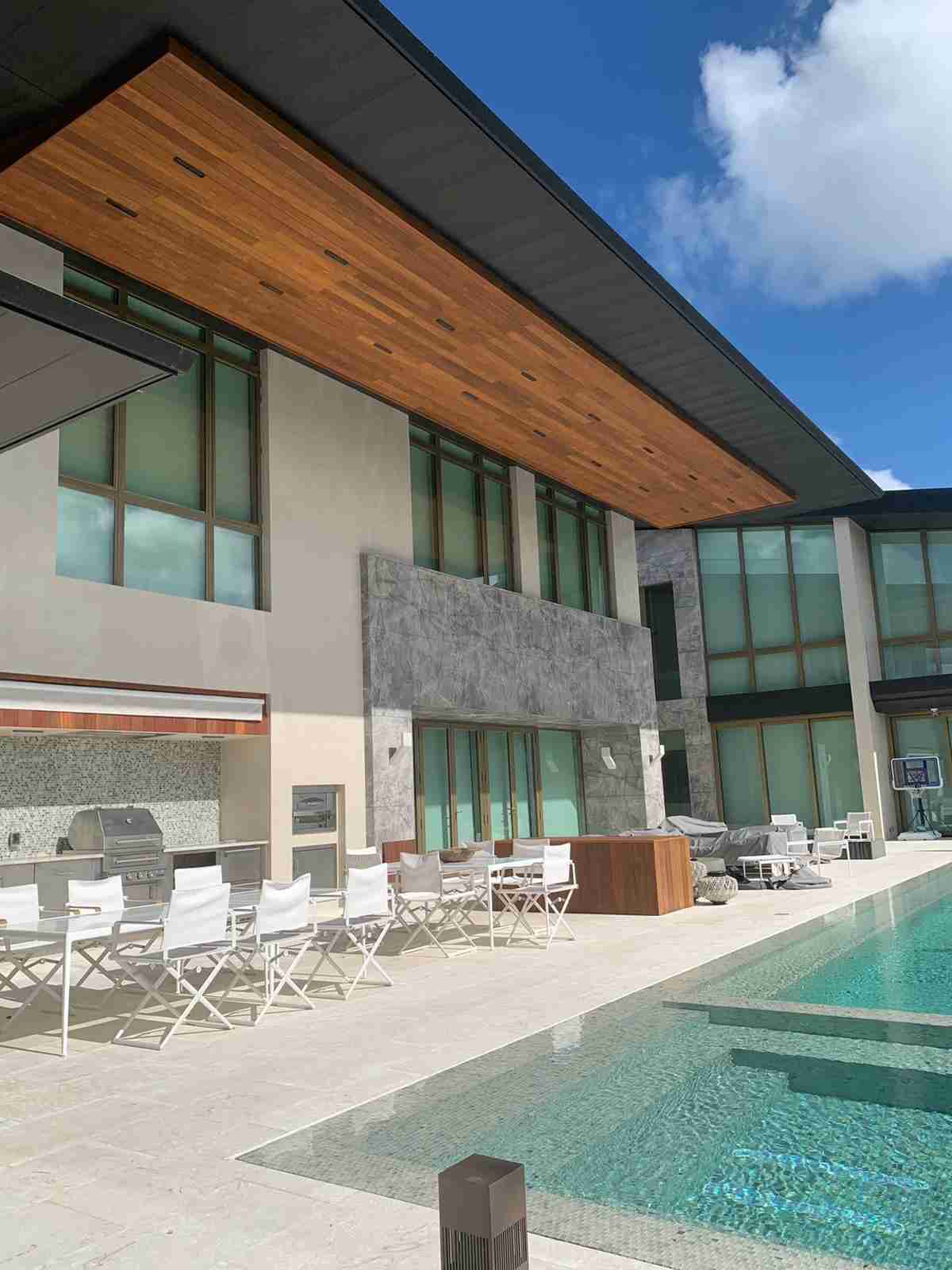
Cumaru lumber, also known as Brazilian Teak, is one of the densest hardwoods for exterior use after Ipe wood. It is resistant to mold and rot, so it is often used for patios, decks, railroad ties, and other purposes.
Like Ipe, Cumaru has an A1 fire rating, does not scratch or splinter easily, does not heat up in the sun, and has a high coefficient of friction.
It’s a perfect example of how to give your home a beautiful look when it comes to installing a deck or a wall cladding.
The main characteristics of Cumaru lumber are:
- Dense and durable: Due to its resistance properties, it can withstand harsh weather conditions and does not require much maintenance.
- High fire rating: Same as the Ipe, you can use Cumaru for cladding on the exterior walls of your home to create a great visual appearance and avoid the risk of fire damage.
- Environmentally friendly: No pesticides or plastics are used in the production of this lumber, which makes it 100% non-polluting.
4. Insect Resistance Of Jatoba Lumber
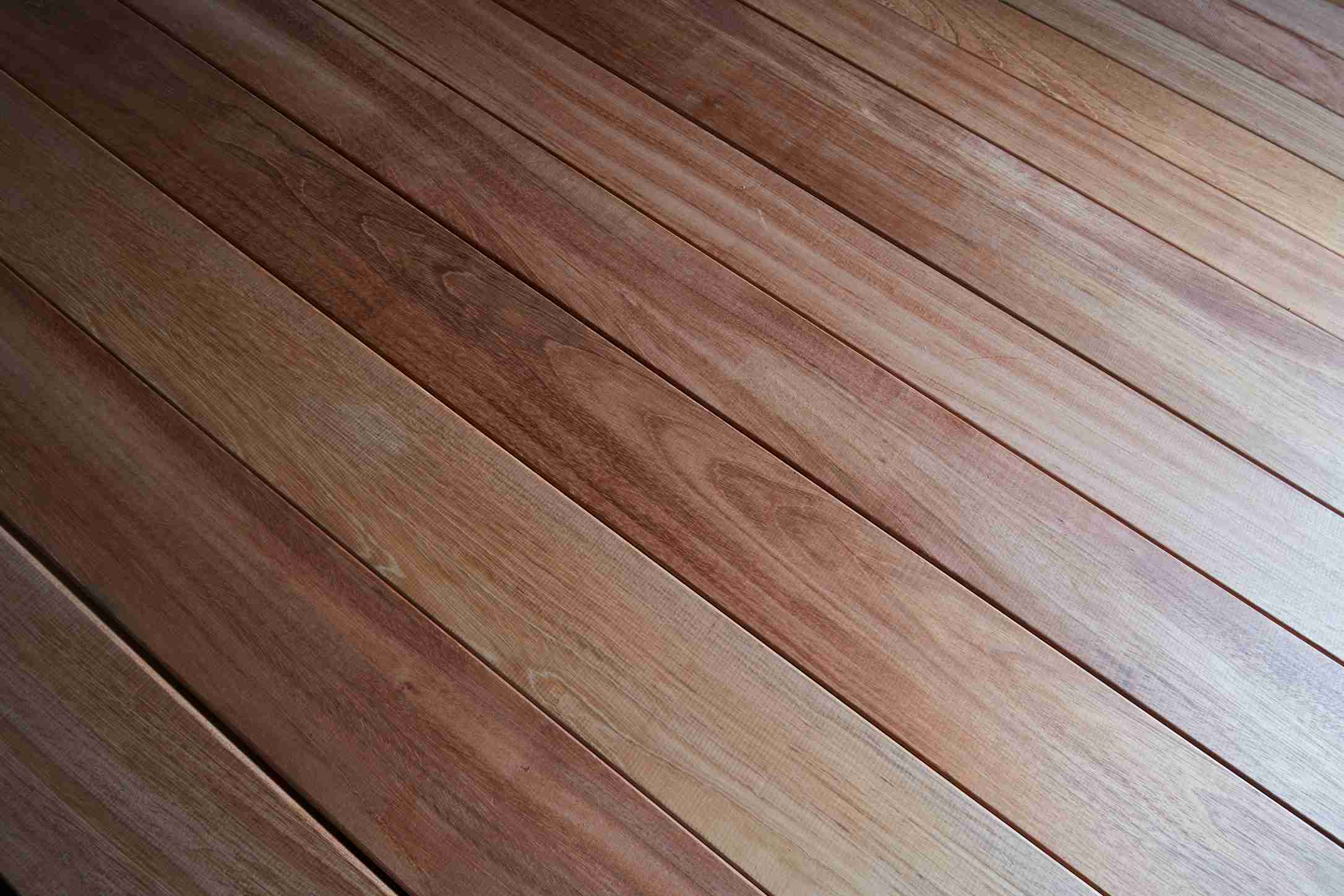
Jatoba lumber is an incredibly strong wood known for its resistance to termites and most insects. It is commonly known as the Brazilian cherry because of its color similarity to the native cherry.
This tropical hardwood is very popular for flooring due to its extreme hardness and resistance, especially in high traffic areas.
It is clear that Jatoba lumber has many outstanding properties, but these two stand out the most:
- Amazing properties: Very strong, tough, and resilient with high impact resistance.
- Durability: Very resistant to termites and extremely resistant to preservatives.
5. Garapa Lumber And Its Resistance To The Elements
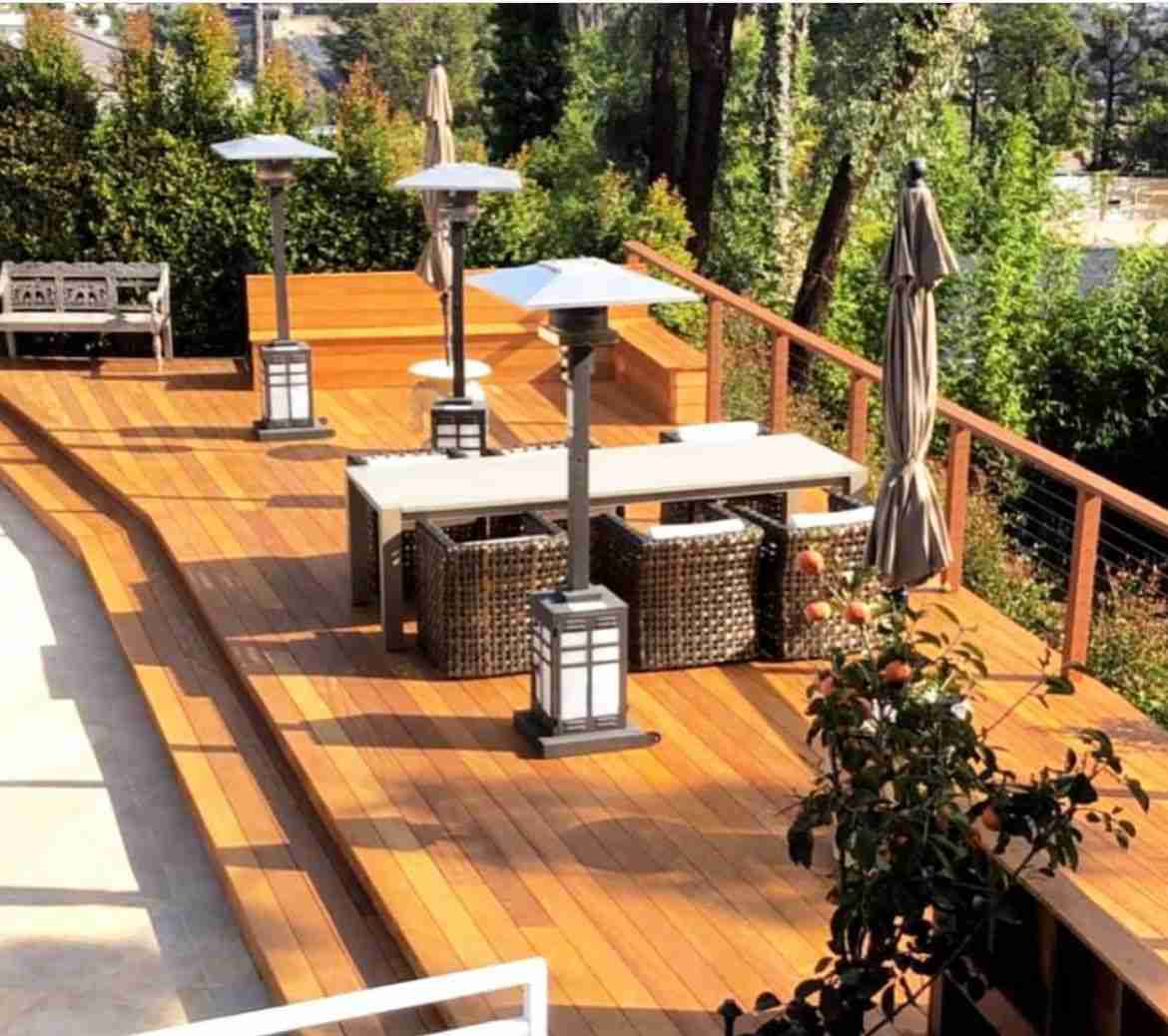
Thanks to its robustness and resistance to extreme weather conditions, water, rot, and mold, Garapa lumber is one of the best woods for decking.
The natural properties of this lumber make it the perfect material to build a deck for a pool or hot tub without having to worry about frequent exposure to water.
The waterproof grain of Garapa lumber keeps moisture out, naturally preventing rot and creating a pool-ready surface.
Although there are many important aspects of Garapa lumber, these are the main ones:
- No risk of splintering: With proper maintenance, Garapa will be less prone to rotting and splintering.
- Low maintenance: By checking your deck regularly and keeping the surface free of debris, you won’t have to worry about constant maintenance.
In conclusion, remember that when looking for a durable material that is resistant to weathering, rot, decay and insect damage, the above options are the best.


